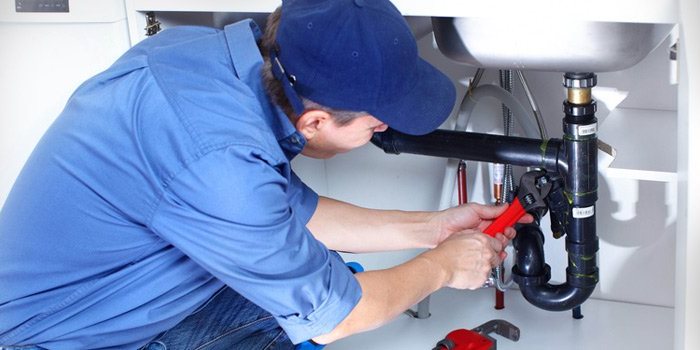How much does a plumber make?

If you’re looking for an exciting and financially rewarding career, look no further than plumbing! Plumbers are in high demand and can earn a comfortable living. Plus, there’s nothing more satisfying than helping others out of a sticky situation!
How much does a plumber make?
How much does a plumber make? This is a difficult question to answer because there are so many variables that can affect a plumber’s salary. For example, the size of the company for which a plumber works, the geographical region in which he or she works, the number of years of experience a plumber has, and the type of plumbing work he or she does can all affect earnings. In addition, self-employed plumbers usually make more than those who work for someone else.
According to the Bureau of Labor Statistics (BLS), the median annual salary for plumbers was $51,450 in May 2016. The lowest 10 percent earned less than $30,730, while the highest 10 percent earned more than $86,490. The BLS notes that most plumbers receive some on-the-job training and must pass an exam to become licensed. Many states also require continuing education to maintain licensure. Some employers may offer tuition reimbursement or apprenticeships to encourage workers to stay up-to-date on new techniques and technology.
What factors affect a plumber’s salary?
There are several factors that affect a plumber’s salary, including experience, location, and type of employer.
-Experience: A plumber with more experience is likely to earn a higher salary than one with less experience.
-Location: A plumber working in a large city is likely to earn more than one working in a small town.
-Type of employer: A plumber working for a large company is likely to earn more than one working for a small company.
The top-paying industries for plumbers
There are a number of different industries where plumbers can earn a high salary. In general, the top-paying industries for plumbers are:
-Oil and gas extraction: $79,560
-Utilities: $74,540
-Construction of buildings: $73,820
-Architectural and engineering services: $72,530
-Pipeline transportation of crude oil: $71,760
The top-paying states for plumbers
The best-paid 25 percent of plumbers earn $62,920 or more annually, which is about $30.15 per hour. The lowest-paid 25 percent of plumbers earn less than $32,140 or $15.44 per hour.
The metropolitan areas with the highest wages for plumbers
The metropolitan areas with the highest wages for plumbers are San Francisco, Honolulu, New York, and Los Angeles. In these cities, plumbers earn an average wage of $60,000 per year.
The industries that employ the most plumbers
The industries that employ the most plumbers are construction, plumbing and heating contractors, and building equipment contractors. These industries accounted for about one-third of all jobs in May 2019.
The states with the most plumbers
There are many factors that affect how much plumbers make. These include their location, experience, and the type of employer they work for.
According to the Bureau of Labor Statistics, the five states with the highest employment levels for plumbers are California, Texas, New York, Florida, and Illinois. The states with the highest wages for plumbers are Alaska, Hawaii, Massachusetts, Rhode Island, and New Jersey.
The type of employer also affects how much plumbers make. For example, those who work for residential construction firms tend to make more than those who work for plumbing contractors or plumbing and heating equipment and supplies dealers.
The metropolitan areas with the most plumbers
1. New York City, NY
2. Los Angeles, CA
3. Chicago, IL
4. Houston, TX
5. Phoenix, AZ
6. Philadelphia, PA
7. San Antonio, TX
8. Dallas, TX
9. San Diego, CA
10. San Jose, CA
How to become a plumber
There are many paths to becoming a plumber. Some plumbers are trained through an apprenticeship, while others attend a trade school or community college. No matter which route you take, you’ll need to get a plumbing license before you can practice your craft.
If you’re interested in becoming a plumber, here’s what you need to know.
What Does a Plumber Do?
Plumbers are responsible for installing and repairing the piping systems that carry water, sewage, and natural gas in homes and businesses. They also install fixtures such as sinks, toilets, water heaters, and dishwashers. In addition to their installation and repair work, plumbers also perform regular maintenance checks on these systems to ensure they’re functioning properly.
Becoming a Plumber
There are two main ways to become a plumber: through an apprenticeship or by attending trade school.
Apprenticeships are typically four years long and combine on-the-job training with classroom instruction. At the end of the program, apprentices must pass a final exam to earn their journeyman license. Journeyman plumbers can then work independently or become supervisors for apprentice plumbers.
Those who want to attend trade school can choose between a two-year diploma or certificate program or a four-year associate’s degree program in plumbing technology. Upon graduation, students must pass an industry-recognized exam to earn their journeyman license.
What to expect as a plumber
As a plumber, you can expect to earn a decent wage. However, your exact salary will depend on a number of factors, including your experience, the size of the company you work for and the geographical location of your job. In general, plumbers in the United States earn between $50,000 and $100,000 per year.



